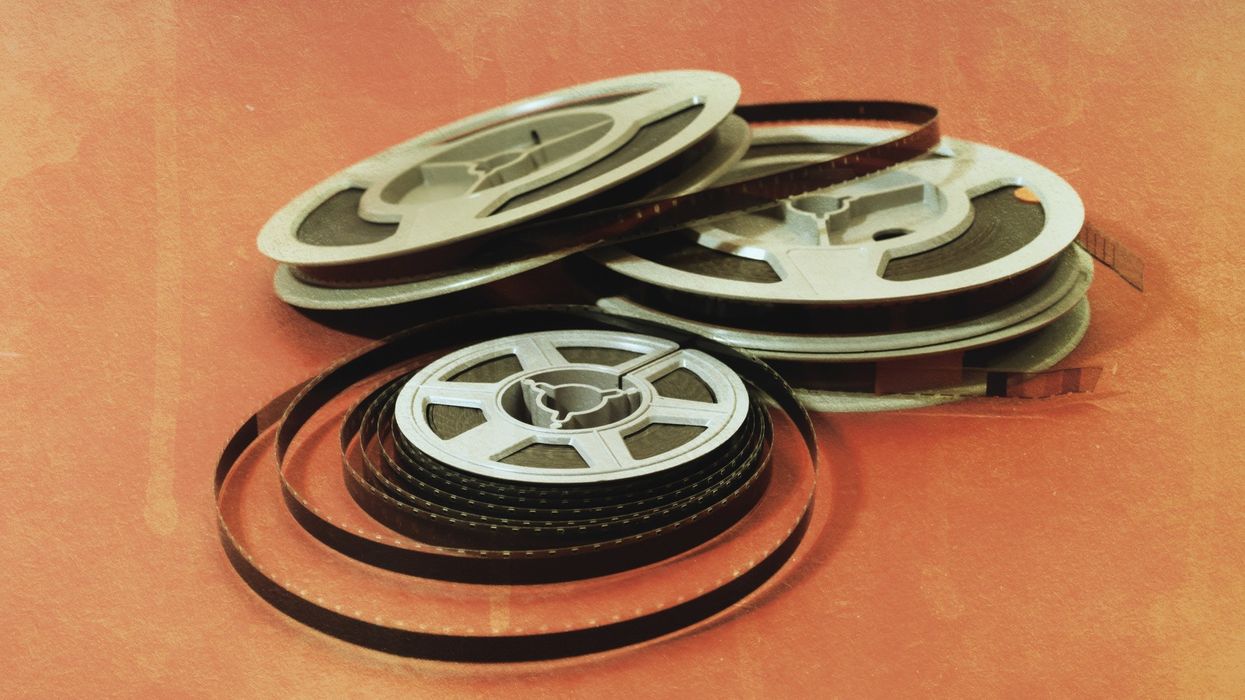How to Care for Your Home Movies that Need a Little TLC
Somewhere, deep in storage, are some family films that need your help. Here are a few ways to care for those films.

Home movies are a treasure that lets us peek into the past. Although many of us might have home movies that were shot on a digital camera, there might be some films lingering somewhere in the house from a previous generation.
Family films are all a little different. Some might be captured on different gauges such as 16 or 8 mm, or might be stored in tins or boxes somewhere in your mom’s house. It's important to make sure that these films are properly cared for since they hold the visual memories of your family and community from a world the existed before you.
If you’ve discovered some family films from a previous generation and don’t know what to do with them, we’ve got some tips from the Academy Film Archive to help you take care of your films.
The best place to store your film is in a place where the temperature does not fluctuate too much. It might be time to move your family films if they are stored in a hot attic or garage or dank basement. Film loves to be stored in a cool and dry place, like a closet or on a shelf.
Film likes to breathe, as well. Keep your films in individual containers that are not completely airtight. You can find film containers for about $10 online that are designed to circulate air and keep the film in perfect condition. If the film is in the original boxes or tins, then you can leave them there since those boxes and tins are made to protect the film.
Always check to make sure the film isn't wrapped in any plastic, and if it is, this is a good time to go and take them out. The same goes for if your films have rubber bands tied around them. Rubber bands tend to dry out the film and distort the film’s quality over time. But don’t worry, you can use some artist tape to keep the ends of the film down without damaging the film.
Never throw your home movies away. If you are looking for a way to watch your family films again but don’t have a projector, you can transfer the film to a DVD, hard drive, or Blu-ray so you can watch over time without having to worry about losing any memories from a bygone era. In the end, the footage will be more stable on film than any format you transfer them to.
You can also celebrate home movie day by showing your family films to your community.
On October 17, you are invited to share reels with your community for Home Movie Day. Although some of the events in the U.S. will still be virtual, there are members at the Home Movie Day website to help you navigate ways you can show and watch your films.
There is always the option to donate your films to an archive if you have no use or want for them. The Academy Film Archive collects all types of films to have a collection that documents life. They are particularly interested in films that capture what life was like in Southern California. There is a good chance that there is a regional archive or historical society in your area that would love to take the films you have no use for to remember and protect history.
Celebrate your family films by giving them the attention they need. Whether that is making sure that they are properly stored or are being taken care of by a historical society, these films represent the past in a way that other forms of media cannot.
Do you have any home movies? Do you have any other tips on how to care for them? Let us know in the comments below!
Source: Academy Originals
















